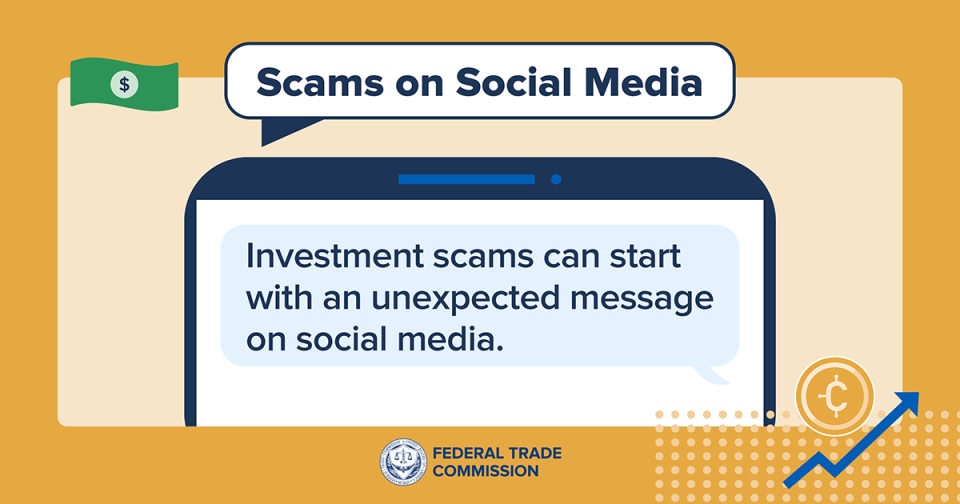With so many people on social media, it’s no surprise that scammers are there, too. A scammer might, for example, send you a message on Facebook, LinkedIn, or WhatsApp offering a chance to invest in cryptocurrency. But there’s no investment opportunity — just a scammer trying to take your money.
Here’s what happens next. If you reply, the scammer will say they’ve made lots of money investing in Bitcoin or another cryptocurrency. And they can get you a special opportunity that guarantees big returns with little or no risk. But these are all lies designed to convince you and get your money.
But let’s say you decide to invest. The scammer will then send you a link to a site or app where you can “invest” and see your account “grow.” The investment website they steer you to will look real, but it’s really fake, and so are their promises. And once the scammer’s gotten as much as they think they can get from you, they’ll shut down your “account” and vanish, leaving you with nothing.
If you get an unexpected message on social media about an investment opportunity, don’t reply. It’s a scam. Know this:
- Unexpected messages on social media about investment opportunities almost always lead to scams. Don’t reply. Scammers like social media because they can be anonymous or pretend to be someone they’re not.
- All investments have risks. Don’t believe anyone who says you can earn a lot of money on an investment with little or no risk. Investments always involve risk — there are no guaranteed returns.
- The U.S. Securities and Exchange Commission (SEC) has advice on investing and avoiding fraud. Visit Investor.gov for more.
Report investment scams and fraud to the FTC at ReportFraud.ftc.gov and to the SEC at sec.gov/tcr.





